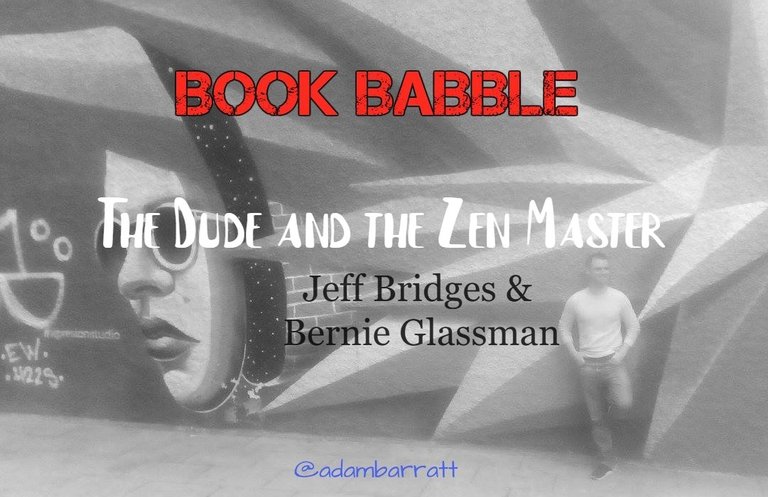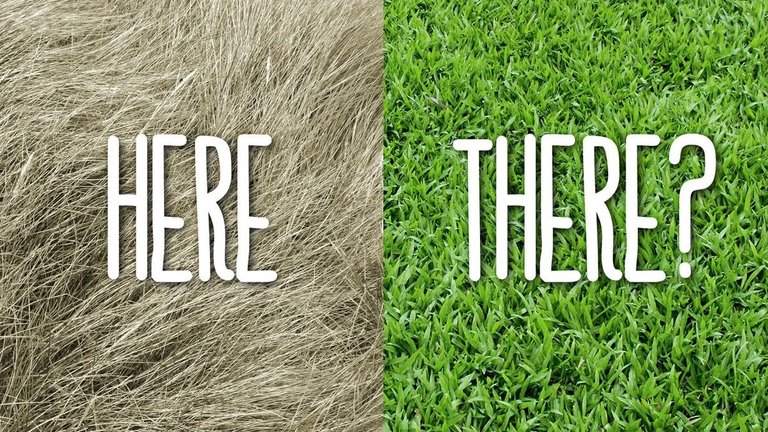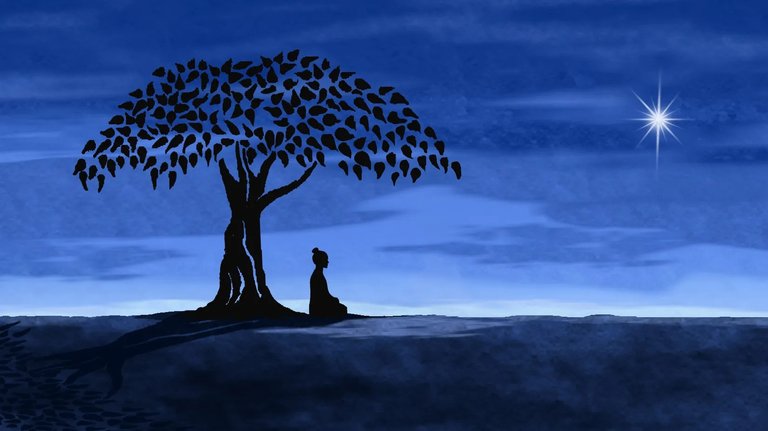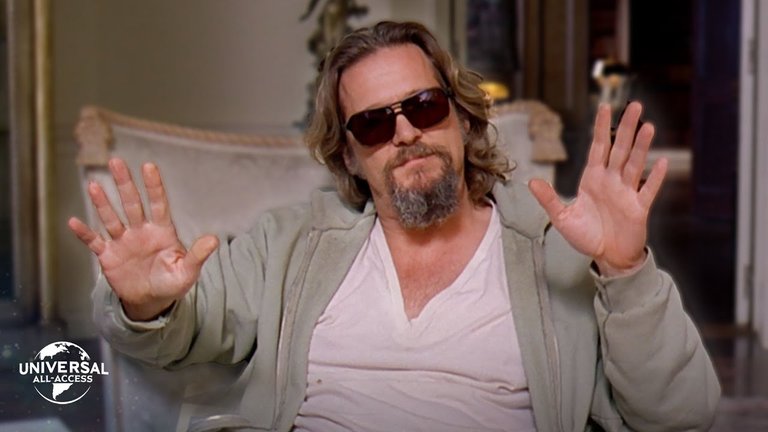Lebowski wisdom and zen chat...

Delightful and profound book chronicling conversation from these 2 characters. This was recommended on Threads and so on the list it went and I recently got round to reading it.
You may well know Jeff Bridges, the actor who has starred in many roles, including as The Dude in The Big Lebowski.
Now, you may not have thought that film was particularly spiritual or deep and the Coen brothers who produced it may have not intended it that way either. Although that depth and meaning can be found anywhere and maybe there's more to The Dude (and Jeff) than meets the eye.
As for Bernie Glassman, he was a Zen Master and world-renowned pioneer in the American Zen Movement. A spiritual leader, published author, accomplished academic and successful businessman... plus friends over the years with Mr Bridges.
So these 2 guys got together and shot the shit, discussing life, love, happiness, and all that jazz...
Highlights from the book followed by my thoughts...
“I just throw the fucking ball! I don’t think.”
Overthinking is a curse and the power lies in just doing. You get feedback and you adjust of course but over analysing and trying to be perfect before pulling the trigger isn't going to get you anywhere. Just do it man!
Mark Twain said, “I am a very old man and have suffered a great many misfortunes, most of which never happened.”
Again with the overthinking. Most of what you imagine never happens and some shit that should have been thought about just happens out of the blue and you have to deal with it on the fly. The moral being not to give too much heed to the maybes which may or may not materialise.
Alan Watts
Alan Watts was a spiritual teacher who has some interesting recordings around the internet, so worth a listen/look if you like these concepts.
if you’re going to wait to get all the information you think you need before you act, you’ll never act because there’s an infinite amount of information out there.
It's reasonable to get some required information first and then use that to base a decision on and then take action. Then new info comes to light and you act from there.
The problem arises when you try and get more and more information which you can't possibly get it all, and you won't actually get the valuable stuff until you start moving anyway, making it pointless and overwhelming.

we get so attached to some end result that we can’t function.
Of course you want to achieve some end but it shouldn't hold you back. Have a goal but be detached from the outcome. That doesn't mean you don't care, you do, but you're ok if it doesn't come to pass but you'll do everything you can to make it so. If it stops you completely then it's game over anyway.
JEFF: And it doesn’t help to say, I’ve got to have a mind-set with no expectations, because that’s also an expectation. So you can get into a spinning conundrum.
When you explore these concepts it can be easy to overdo it and get confused. You try and have no expectation, but that is one, and you go round in circles. You need to be more relaxed about it, become aware but don't overthink that.
Just row, row, row your boat gently down the stream
This was a phrase that was come back to throughout the book. It's from a nursery rhyme, and the point is to go about your life positively and lightly, and meandering along. Going with the flow whilst using your influence - gently - where you can, and where it makes sense.
An English philosopher said that whatever is cosmic is also comic.
This is about humour. Everything in the universe should have an element of fun.
plorking. I’m not playing and I’m not working, I’m plorking.
A mixture of the 2. They don't have to be mutually exclusive and you can play while you work, and work while you play. There's obviously specific scenarios that affect this but you get the idea. Not sure I'm a fan of the word plorking but the point is valid.
Oscar Wilde said that life is too important to be taken seriously.
Again with the wit and having fun. We get too bogged down in all this seriousness as it doesn't help us and isn't enjoyable.
BERNIE: I always have this red nose in my pocket, and if it looks like I’m taking things too seriously, or the person I’m talking to is taking them too seriously, I put the nose on.
A way that Bernie likes to lighten the mood. Popping that red nose on to diffuse the situation. Not sure if that's always practical or appropriate, but some sort of pattern interrupt is often a good idea.
In Zen we say that the other shore is right here under our feet. What we’re looking for—the meaning of life, happiness, peace—is right here. So the question is no longer, how do I get from here to there? The question is: How do I get from here to here? How do I experience the fact that, instead of having to get there for something, it’s right here and now? This is it; this is the other shore. In Buddhism we sometimes call it the Pure Land.
One of the most profound passages of the book and as deep and central as it gets. We're all affected by shiny objects and various choices. Searching for something, which is really right under our noses.
It's always 'just over there', those greener pastures that you think you want. Maybe you do, maybe you don't but once you are over there, the chances are you are looking back to here or somewhere else again.

The only way to be is to be fully in the situation you are at any given time, otherwise you'll never reach where you want to go. And those pastures and that grass is always greener where watered, nurtured and attended to. Perhaps we are already 'home' and the Pure Land is where we are and living it fully.
After all, wherever you go, there you are!
It’s like Dorothy trying to get home in The Wizard of Oz.
And Peter Pan trying to find Neverland. Dorothy, Peter and us are trying to find something... perhaps trying to make our way 'home'. Then we may realise we had it all along, and that that whimsical magical land doesn't actually exist.
The little rudder turns the big rudder and the big rudder turns the ship.
This is about small actions leading to bigger results. Like the small rudder turning the big rudder, there's a knock-on effect of our action to others which eminates. That's The Butterfly Effect and how movements grow.
You’ve got to take care of yourself on the path, not just when you cross the goal line, because don’t forget, wherever you are, that’s the goal line.
It's the journey. And perhaps there's just one goal line that keeps on moving as you go - and that's where you are right now. Besides, when you reach the goal (and if you don't), you'll likely set a new one anyway. It's there as a target and something to work towards but taking care of each part of the process (and yourself) is where the riches lie.
mensch
A mensch is a person of integrity and honour. In the context used in the book, they are someone who lives a very 'ordinary' life, are happy doing so and have a large impact on their circle of influence in their own way. They're humble, do what needs to be done, and contribute usefully to the small world around them and the wider world at large.
There are different roles for different people but there's a certain honesty, authenticity and level of contribution living in this way. Not to say you can't do big things, but you can adopt some of this persona... and there are others who this is just who they are, and that's enough.
Heraclitus, a Greek philosopher who preceded Aristotle, was the guy who said that you could never step in the same river twice, because the river’s always changing.
Everything is always changing, even the same thing is going to be slightly different each time. Every moment is unique and we should live it as such.
If you’re attuned enough, you can hear the pecking of the universe saying, Peck peck peck peck peck, I want to be born!
This was in reference to chickens and the hatching process. They peck from the inside when they're ready to come out and the mother pecks from the outside to help it out. If they do it too soon then the chicken isn't ready or formed and will likely die, and if you leave it too late then it will suffocate inside.
There's a sweet spot, a perfect time to give life.
Life’s not about not getting knocked over, it’s about how fast you come back. So if you think, Oh, I got knocked over and that’s a sign that I’m not practicing well enough, all that happened was that you met a situation that was a little bigger than you, and that gave you a new opportunity for more practice.
It's a well worn concept to say that you should get up again each time you fall, and that eventually will lead to success. Either way, it's how quickly you get back on track, learn from the 'defeats' and move forward.

My definition of enlightenment is realizing the oneness of life. And whatever you exclude and call not me, or whatever you’re not willing to deal with, is going to thwart you. Any action you take that does not include all viewpoints is going to fail, and it will fail exactly in the areas you excluded.
Quite a lot going on in this one. It's the main idea of Buddhism and other beliefs systems, that all is one. You are everone and everything else, and vice-versa. This is a tricky one to get your head around and easy to forget but there's a lot of weight to it. The more we consider and act on this idea, the theory goes that we will be more content ourselves as well as contribute positively to the world at large.
dotoku, which means the way of expression. Do is Tao, the way, and toku is expression. The way of expression is to express yourself so that somebody can really understand.
Another word for you - dotoku. You may be familiar with the word and concept of Tao ("dao"), otherwise known as The Way, and the toku part is how we express that. Then getting to the root of understanding what is meant and how that impacts everything.
In Japan there’s a phrase that says that the higher a tree grows, the more wind it has on it. It’s a natural part of what it means to grow. You could try to force the wind to stop, but you could also work with it, just like you do in sailing.
Back to rowing your boat gently down the stream. If you grow, you're more exposed to the elements... then it's a case of working with them rather than against. Aikido that thang.
it’s like those Lojong teachings that the knots in your life can also be the keys to your liberation.
The obstacle is the way, being antifragile and all that jazz. Much dverstiy carries with it the seed of success, so it's a case of not viewing it as a hinderance but embracing it for positive means.
The Chinese language is made of symbols rather than letters. Their word for difficulty consists of two characters, and one of the characters is opportunity. Hidden within every difficulty is an opportunity.
Crisis = danger and opportunity. Yes, you're facing a challenge but within that lies great potential... potentially ;).
There was this wonderful ninth-century Chinese Zen master, Zhaozhou. He trained for forty years with his teacher, and when he finished his studies he said, I’m going to go on the road, and if I run into an eight-year-old girl who embodies this path, I’ll stay and learn from her. And if I run into an eighty-year-old master who’s got all of the answers, I’ll move on. He didn’t want answers, he wanted the life.
There's a chunk of wisdom in this passage. Everyone has something to teach you, and the more you learn the more you realise there is to learn. Anyone who 'knows it all' at any age is lacking in this undesranding and anyone embodying this path (again, at any age or place in life) is someone to sit down with.
I have a lot of resistance to getting hooked because I know the engagement and the investment that will be required. And you only have so much time to do things, so once you choose to do one thing you’re not going to do others.
This is another angle on opportunity cost which we come back to a lot in these here Babbles. Jeff gets worried that anytime he puts his attention towards something, then he goes all in and he simply doesn't have the time and energy for it all, so may avoid it. You only have a certain amount of resources to be used wisely, so it's not a case of avoiding things, or doing everything... but picking your battles.

I learned that it’s not about hitting the note sharp or flat. Sinatra would sometimes hit a note a little flat, too, and that imperfection made the sound even stronger. It’s not about perfection, it’s about authenticity.
Perfection is overrated anyway. It's in those imperfections that have character and uniqueness, as well as being more relatable. Sinatra wouldn't have been the popular singer he was if he was note perfect (I mean, you've got to be pretty good, but the odd quirky note may add a bit of spice and a Frank stamp).
Open, open, open.
As in be open. Open to all of it!
when we look at what to do in life, we tend to be constrained by what we don’t have instead of appreciating what we do have.
Always appreciate what you have. Strive for more for sure, but come from the angle of gratitude and don't give in to the suffering of attachment for a desire.
As long as you’re experiencing yourself as separate from anything else, that’s delusion.
Goes back to that sense of oneness. We can go as far as to say that the rest is delusion.
That’s why we say that once you cross the river, get rid of the boat. Don’t keep on carrying it, because you’re in a new place, so what are the appropriate practices now?
Not carrying old energies and baggage on to the next section of the journey. Based on the situation now there's a correct sequence of events and anything past has gone. If you do, that will affect everything you do and a part of you will be stuck.
At some point you have to decide whether you will love humanity or hate it, and he chose to love humanity.
It's a bit like Einstein's pondering that the main question you have to ask yourself is if you live in a hostile or friendly universe. This is similar - are you coming from a love or hate perspective as that will drive all you do, how you feel about it, the results that come, and the life you'll lead.
Among the Buddha’s foremost teachings, saying in essence: life is suffering; suffering arises from attachment or desire; suffering ends when attachment or desire ends; and the way to achieve that is by following the Eightfold Path.
Clarification is probably needed on this Buddhist central tenet. Life is suffering is a bit on the nose and debatable but it does make sense. There are just different forms and it's how that's dealt with. It's attachment to particular outcomes that's the real suffering.
Attachment of all forms are bad news. You can want something and go for it but excessive desire and allowing it to affect your mood will not help you in general, and ironically, be detrimental to what you're chasing.
if a voice says, I should have done this, I can say right back, That’s just your opinion, man.
This was another phrase that popped up a few times in the book. It's just your opinion man! You're entitled to it, but that's just one viewpoint. That can apply to other people and also to the voice in your own head.
that people want to be heard. They don’t necessarily want answers, they don’t want to be told anything, they want to be heard.
People don't want their problems solved per se. They might want them to go away or become easier, but the whole point of conversation and connection is to simply be there with them. Talk it out, listen. You can share you own experience but not necessarily offer advice or give 'answers'. They can come to their own conclusions and will be happy to be seen and heard.
My actions are my only true belongings. I cannot escape the consequences of my actions. My actions are the ground upon which I stand.
Your actions is where it's at. Thoughts, ideas, intentions are all great but you will be judged (by yourself and others) and be rewarded or punished on the basis of what you actually do. That's the record you'll leave, and that's what will be out there in the word. Act accordingly.

Thanks Jeff and Bernie! Anything else?
A really profound and interesting book, and one of the best I've read in a while. You don't need to care much about the movie, or even Zen/Buddhism, as that is more of an underpinning of a deeper conversation and thought process.
Not overly complicated and easy to follow along - just 2 people talking about life and what could be more simple than that. What was said and how it may make you think about your own principles and actions is another matter. And that's where the power lies in this type of text.
A fascinating discussion between 2 spiritual folks and here we're invited in to the chat and their worlds. I can't see anyone disliking this book, as there will be a snippet here and there for all. Then there will be those who will love the whole thing and could touch them on a deeper level.
If you haven't read it, well worth a look... and perhaps time to re-watch that movie!
- First 50 BookBabbles
- Numbers 51-75 at the bottom of this post
- 76: THE HAPPINESS ADVANTAGE - Shawn Achor
- 77: WHY HAS NOBODY TOLD ME THIS BEFORE - Julie Smith
- 78: THE DUDE AND THE ZEN MASTER - Jeff Bridges & Bernie Glassman
Posted Using INLEO
That was a solid breakdown of the book! Sounds like a mix of Zen wisdom, laid-back Dude-ism, and some deep life truths wrapped in an easy-going conversation.
Definitely one of those reads that can shift your perspective without being overly preachy.
Exactly that!
Excellent summary of a book - thank you for taking time to include all those quotes and excerpts!
(especially the Mark Twain and Oscar Wilde quotes - personal favorites!)
THE DUDE ABIDES
Thanks for stopping by, glad you liked it!
Congratulations @adambarratt! You have completed the following achievement on the Hive blockchain And have been rewarded with New badge(s)
Your next target is to reach 18500 replies.
You can view your badges on your board and compare yourself to others in the Ranking
If you no longer want to receive notifications, reply to this comment with the word
STOPCheck out our last posts: